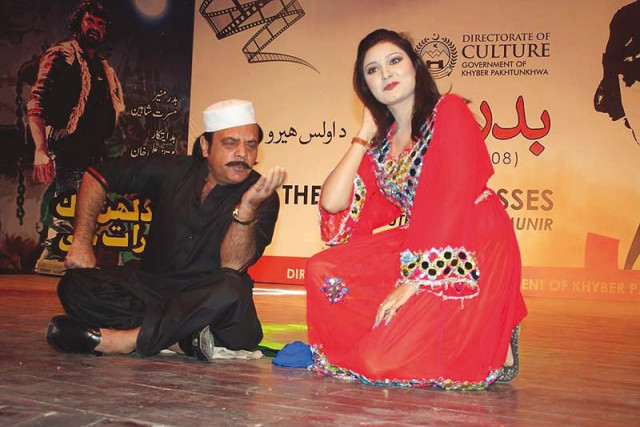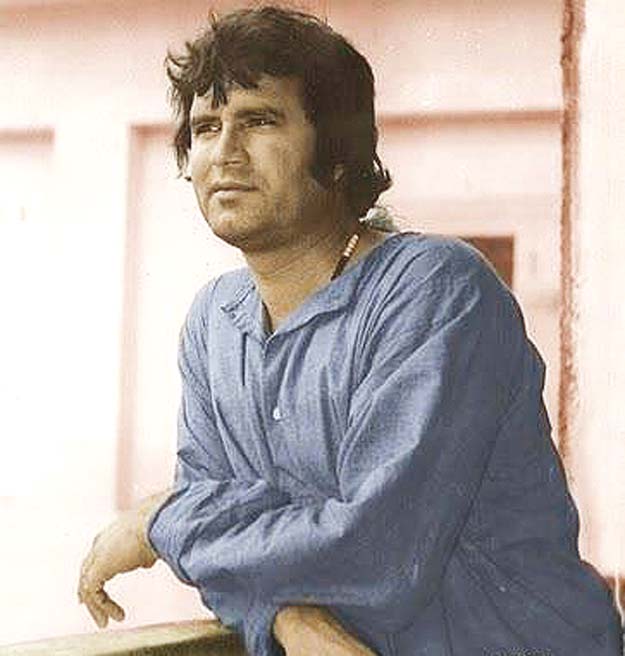The man who defined Pashto cinema
Directorate of Culture Khyber Pakhtunkhwa holds ceremony in honour of Badar Munir

The memorial saw various actors, singers, film directors, writers and fans pay tribute to the late actor.
The memorial saw various actors, singers, film directors, writers and fans pay tribute to the late Munir, who is still, widely regarded as the ‘Hero of the masses.’ Munir’s son Sayed Munir, who is also an actor performed on one of his father’s popular songs.
Born in Swat to a religious family, Munir moved to Karachi in pursuit of a career in film-making. His first job was that of a lighting assistant at a local studio.

The actor’s big break came in 1970, when Waheed Murad was offered the lead role in Yousaf Khan Sherbano but had to turn it down due to his unfamiliarity with Pashto. It was Murad who requested the producers to cast Munir in his place. The film — also starring Yasmeen Khan as the female lead — went on to become a great success, paving the way for both Pashto cinema and Munir’s future as an actor.
“I can never forget the good old days when Pashto films were on their peak and Badar was ruling the industry,” Pashto ghazal singer Khyal Muhammad told The Express Tribune. “Badar was a maverick; a one-of-a-kind actor whose contributions to cinema will always be remembered.”
Unfortunately, Munir’s efforts have arguably been rendered futile over the last few years, as Pashto cinema hangs by a thread. Once the primary source of entertainment for people of the K-P region, the industry now has just a handful of artists and films to survive upon and seems to have developed a notorious reputation for violence and vulgarity.

Munir is still widely regarded as the ‘Hero of the masses.’ PHOTOS: HIDAYAT KHAN/EXPRESS
Munir spent nearly 40 years in the industry, before passing away in Lahore in 2008. He was 68 years of age at the time of his death. He left behind an impressive roster of some 732 Urdu, Pashto and Punjabi films, including classics such as Orbal, Adam Khan Durhani, Dedan and Khana Badosh.
“It is an absolute shame that the Pashto film industry seems to be ignoring the time of the great Badar Munir; that it broke away from the golden traditions,” stated writer and cultural critic Dr Abasin Yousafzai. “Badar’s work was unique, vibrant and his influence on contemporary film-makers should never be underestimated. His films were known for their unforgettable stories which reflected social realities.”
Film-maker Shahid Khan, however, claimed otherwise. “Our films have adopted modern technology but now, film-making is closing down in Lahore and very few films are being made in Karachi,” he said. “We have tried to keep the industry alive but our films have failed to do any business. In the past, there were more than 100 cinema houses in the province but now, we have just 12 and those too are in horrible conditions!” added Khan, who also worked as an actor and producer.
Published in The Express Tribune, November 24th, 2016.
Like Life & Style on Facebook, follow @ETLifeandStyle on Twitter for the latest in fashion, gossip and entertainment.



















COMMENTS
Comments are moderated and generally will be posted if they are on-topic and not abusive.
For more information, please see our Comments FAQ